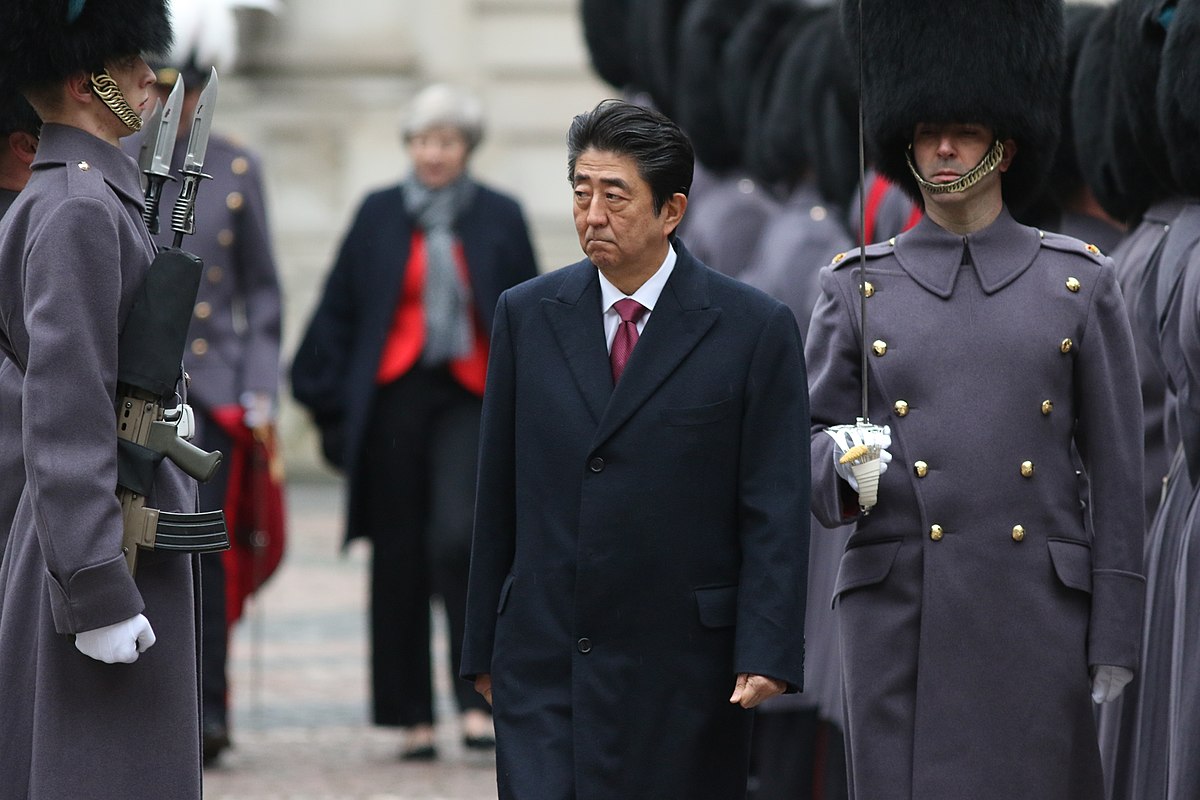What does Abe’s resignation mean for the Tokyo Olympics?
On 28 August, Japanese Prime Minister Shinzo Abe resigned for health reasons. The 65-year-old has suffered for many years from an inflammatory bowel disease called ulcerative colitis, and his new treatment would not have allowed him time to carry out his prime ministerial duties – with one year left in his post, Abe felt he had to leave.
Abe is a staunch conservative and nationalist, stimulating growth with aggressive economic policy, and boosting military spending. His departure is an unfortunate one in the middle of the Covid-19 pandemic. But little attention is being paid to an event that Abe had hoped would be the capstone of his time in office – the Tokyo Olympics. With the Prime Minister now leaving, what does it mean for the sporting event?
Abe’s importance to the Olympic process cannot be understated. He was a major player in the team that helped Tokyo win the bid, helping to sooth IOC worries that the 2011 meltdown of three nuclear reactors, after an earthquake and a tsunami, was “under control”. He became the face of Tokyo 2020 in the closing ceremony of the 2016 Rio Olympics, appearing before a crowd dressed as Super Mario, something that went down went well with fans in Brazil and around the world.
His successor might not care as much, but so much depends on the IOC
– Jeff Kingston
David Leneny, who teaches Politics at Tokyo’s Waseda University, said that leaving office now left Abe without any major policy breakthroughs. He said: “I think this likely is heart-breaking for Abe. I think the Olympics would have been the one major thing he could point to and say – ‘yes’ – I did that. I made that happen. He still might and I think whoever the next prime minister is will ensure Abe has a prominent place at the Olympics, but it won’t be the same as his being in charge to welcome people.”
Similarly, Jeff Kingston, who teaches Japanese Politics at Temple University, Tokyo, said: “I think [Abe’s resignation] won’t make much difference. The Olympics benefitted from his backing but now the situation is beyond the prime minister’s control. His successor might not care as much, but so much depends on the IOC, the Tokyo organising committee, and sports federations around the world.”
The race to succeed Abe is now on, and there are a series of potential replacements from within Abe’s Liberal Democratic Party (LDP). The winner will hold the post until the end of Abe’s term in September 2021, meaning they would oversee the Olympics if it took place.
Whoever takes over, it is expected that they will stick close to existing government policies, and the Olympics is a centrepiece of that policy. According to a senior LDP member: “If the Olympics and Paralympics are cancelled, the administration would become a lame duck.”
There appears to be a divide in the upper LDP about whether the Olympics actually can happen. Abe said that the Games would go ahead next year in a reduced form if a vaccine for Covid-19 is not available. Yoshiro Mori, head of the Tokyo 2020 Organising Committee, suggested that the government could present “various options” to the IOC as a backstop, depending on the global situation at the time.
The decision to hold the Olympics will need to be made by March of next year
An LDP executive close to Abe said the Games “should definitely take place, even without spectators”. They added: “It’s impossible to completely eradicate the coronavirus and hold the Tokyo Games. We aim to manage the Olympics while coexisting with the coronavirus.”
However, a general sense of pessimism is overtaking proceedings. A veteran LDP politician predicted: “The Olympics will be unable to take place.” A recent poll of almost 13,000 Japanese companies showed that 53.6% want the Games postponed again or just cancelled entirely. Postponement or cancellation is also backed by two-thirds of the public, and it’s expected that failure to find a vaccine, or news of further outbreaks, will sour public opinion even more.
Tokyo organisers say that they’re officially spending $12.6 billion on holding the Olympics, but a national audit board says it will be twice that much. That’s before the bill for the delay is added on as well, and that’s expected to be several billion more.
The decision to hold the Olympics will need to be made by March of next year, and the IOC has said that a further postponement is not going to happen. If the Tokyo Games don’t happen in 2021, they aren’t going to take place, and such a move would likely destroy the government. A cabinet source said it would be “so miserable for the administration to continue” in the event of an abandoned Olympics.
Abe was perhaps the one politician in Japan with the appetite and political strength to pursue the Olympics, even as his approval ratings plummeted, and his departure is another nail in the coffin for the Tokyo Games.
It would be good to see the Games go ahead, but the cost is climbing and a safe period of global sport looks increasingly unlikely. Abe said that the Olympics would help “create momentum for Japan to rise in the world again” – with his departure, that momentum looks to have stalled.

Comments